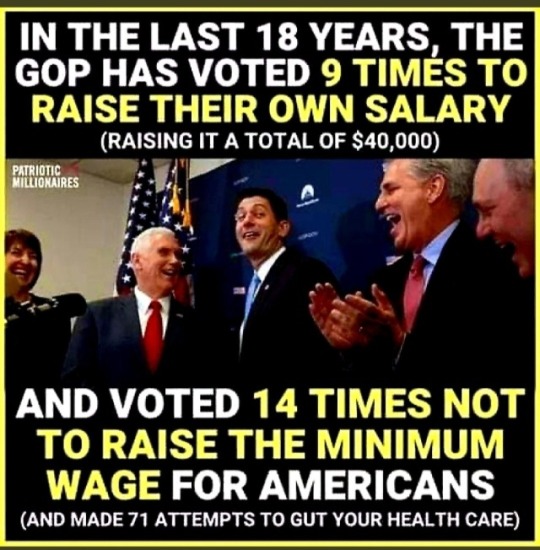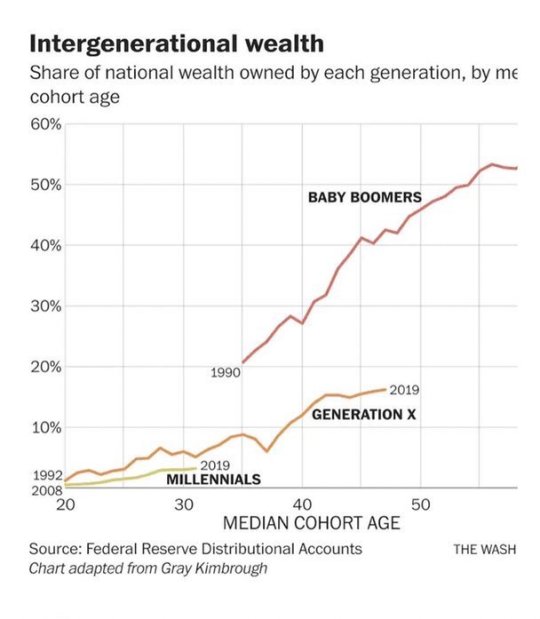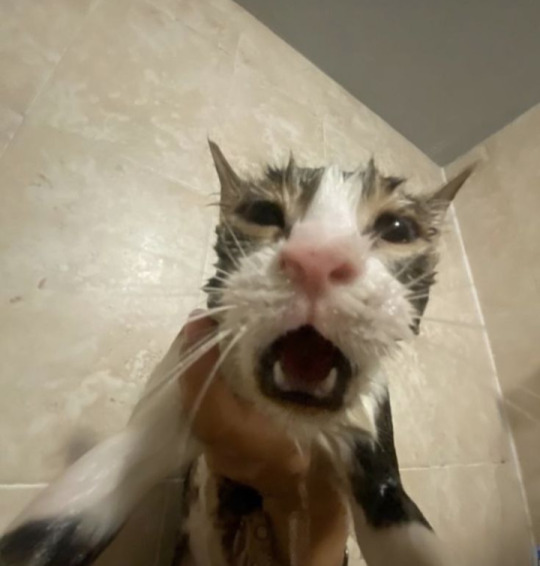#nber
Text
The surveillance advertising to financial fraud pipeline

Monday (October 2), I'll be in Boise to host an event with VE Schwab. On October 7–8, I'm in Milan to keynote Wired Nextfest.

Being watched sucks. Of all the parenting mistakes I've made, none haunt me more than the times my daughter caught me watching her while she was learning to do something, discovered she was being observed in a vulnerable moment, and abandoned her attempt:
https://www.theguardian.com/technology/blog/2014/may/09/cybersecurity-begins-with-integrity-not-surveillance
It's hard to be your authentic self while you're under surveillance. For that reason alone, the rise and rise of the surveillance industry – an unholy public-private partnership between cops, spooks, and ad-tech scum – is a plague on humanity and a scourge on the Earth:
https://pluralistic.net/2023/08/16/the-second-best-time-is-now/#the-point-of-a-system-is-what-it-does
But beyond the psychic damage surveillance metes out, there are immediate, concrete ways in which surveillance brings us to harm. Ad-tech follows us into abortion clinics and then sells the info to the cops back home in the forced birth states run by Handmaid's Tale LARPers:
https://pluralistic.net/2022/06/29/no-i-in-uter-us/#egged-on
And even if you have the good fortune to live in a state whose motto isn't "There's no 'I" in uter-US," ad-tech also lets anti-abortion propagandists trick you into visiting fake "clinics" who defraud you into giving birth by running out the clock on terminating your pregnancy:
https://pluralistic.net/2023/06/15/paid-medical-disinformation/#crisis-pregnancy-centers
The commercial surveillance industry fuels SWATting, where sociopaths who don't like your internet opinions or are steamed because you beat them at Call of Duty trick the cops into thinking that there's an "active shooter" at your house, provoking the kind of American policing autoimmune reaction that can get you killed:
https://www.cnn.com/2019/09/14/us/swatting-sentence-casey-viner/index.html
There's just a lot of ways that compiling deep, nonconsensual, population-scale surveillance dossiers can bring safety and financial harm to the unwilling subjects of our experiment in digital spying. The wave of "business email compromises" (the infosec term for impersonating your boss to you and tricking you into cleaning out the company bank accounts)? They start with spear phishing, a phishing attack that uses personal information – bought from commercial sources or ganked from leaks – to craft a virtual Big Store con:
https://www.fbi.gov/how-we-can-help-you/safety-resources/scams-and-safety/common-scams-and-crimes/business-email-compromise
It's not just spear-phishers. There are plenty of financial predators who run petty grifts – stock swindles, identity theft, and other petty cons. These scams depend on commercial surveillance, both to target victims (e.g. buying Facebook ads targeting people struggling with medical debt and worried about losing their homes) and to run the con itself (by getting the information needed to pull of a successful identity theft).
In "Consumer Surveillance and Financial Fraud," a new National Bureau of Academic Research paper, a trio of business-school profs – Bo Bian (UBC), Michaela Pagel (WUSTL) and Huan Tang (Wharton) quantify the commercial surveillance industry's relationship to finance crimes:
https://www.nber.org/papers/w31692
The authors take advantage of a time-series of ZIP-code-accurate fraud complaint data from the Consumer Finance Protection Board, supplemented by complaints from the FTC, along with Apple's rollout of App Tracking Transparency, a change to app-based tracking on Apple mobile devices that turned of third-party commercial surveillance unless users explicitly opted into being spied on. More than 96% of Apple users blocked spying:
https://arstechnica.com/gadgets/2021/05/96-of-us-users-opt-out-of-app-tracking-in-ios-14-5-analytics-find/
In other words, they were able to see, neighborhood by neighborhood, what happened to financial fraud when users were able to block commercial surveillance.
What happened is, fraud plunged. Deprived of the raw material for committing fraud, criminals were substantially hampered in their ability to steal from internet users.
While this is something that security professionals have understood for years, this study puts some empirical spine into the large corpus of qualitative accounts of the surveillance-to-fraud pipeline.
As the authors note in their conclusion, this analysis is timely. Google has just rolled out a new surveillance system, the deceptively named "Privacy Sandbox," that every Chrome user is being opted in to unless they find and untick three separate preference tickboxes. You should find and untick these boxes:
https://www.eff.org/deeplinks/2023/09/how-turn-googles-privacy-sandbox-ad-tracking-and-why-you-should
Google has spun, lied and bullied Privacy Sandbox into existence; whenever this program draws enough fire, they rename it (it used to be called FLoC). But as the Apple example showed, no one wants to be spied on – that's why Google makes you find and untick three boxes to opt out of this new form of surveillance.
There is no consensual basis for mass commercial surveillance. The story that "people don't mind ads so long as they're relevant" is a lie. But even if it was true, it wouldn't be enough, because beyond the harms to being our authentic selves that come from the knowledge that we're being observed, surveillance data is a crucial ingredient for all kinds of crime, harassment, and deception.
We can't rely on companies to spy on us responsibly. Apple may have blocked third-party app spying, but they effect nonconsensual, continuous surveillance of every Apple mobile device user, and lie about it:
https://pluralistic.net/2022/11/14/luxury-surveillance/#liar-liar
That's why we should ban commercial surveillance. We should outlaw surveillance advertising. Period:
https://www.eff.org/deeplinks/2022/03/ban-online-behavioral-advertising
Contrary to the claims of surveillance profiteers, this wouldn't reduce the income to ad-supported news and other media – it would increase their revenues, by letting them place ads without relying on the surveillance troves assembled by the Google/Meta ad-tech duopoly, who take the majority of ad-revenue:
https://www.eff.org/deeplinks/2023/05/save-news-we-must-ban-surveillance-advertising
We're 30 years into the commercial surveillance pandemic and Congress still hasn't passed a federal privacy law with a private right of action. But other agencies aren't waiting for Congress. The FTC and DoJ Antitrust Divsision have proposed new merger guidelines that allow regulators to consider privacy harms when companies merge:
https://www.regulations.gov/comment/FTC-2023-0043-1569
Think here of how Google devoured Fitbit and claimed massive troves of extremely personal data, much of which was collected because employers required workers to wear biometric trackers to get the best deal on health care:
https://www.eff.org/deeplinks/2020/04/google-fitbit-merger-would-cement-googles-data-empire
Companies can't be trusted to collect, retain or use our personal data wisely. The right "balance" here is to simply ban that collection, without an explicit opt-in. The way this should work is that companies can't collect private data unless users hunt down and untick three "don't spy on me" boxes. After all, that's the standard that Google has set.

If you'd like an essay-formatted version of this post to read or share, here's a link to it on pluralistic.net, my surveillance-free, ad-free, tracker-free blog:
https://pluralistic.net/2023/09/29/ban-surveillance-ads/#sucker-funnel

Image:
Cryteria (modified)
https://commons.wikimedia.org/wiki/File:HAL9000.svg
CC BY 3.0
https://creativecommons.org/licenses/by/3.0/deed.en
#pluralistic#commercial surveillance#surveillance#surveillance advertising#ad-tech#behavioral advertising#ads#privacy#fraud#targeting#ad targeting#scams#scholarship#nber#merger guidelines#ftc#doj
286 notes
·
View notes
Text





#us politics#republicans#conservatives#gop#congressional salaries#minimum wage#wages#raise the minimum wage#wage gap#intergenerational wealth#tax rate#hourly wages#capital gains#capital gains tax#income#productivity vs. pay#productivity#economic policy institute#Piketty/Saez data#NBER#Federal Reserve Distributional Accounts#graphs#statistics
544 notes
·
View notes
Text
ESG Spillovers-NBER Working Paper on ESG and non-ESG mutual funds
ESG Spillovers
Shangchen Li, Hongxun Ruan, Sheridan Titman, and Haotian Xiang
NBER Working Paper No. 31248
May 2023
JEL No. G14,G2
ABSTRACT
We study ESG and non-ESG mutual funds managed by overlapping teams. We find that nonESG mutual funds include more high ESG stocks after the creation of an ESG sibling, and the
high ESG stocks they select exhibit superior performance. The low ESG stocks…
View On WordPress
0 notes
Text
The National Bureau of Economic Research just put out a new study today showing that twice as many Republicans were killed by Covid as Democrats
with the incredibly narrow margins in the midterm races, I can't help but wonder if this year might have instead seen dramatic victories for the right
except for the fact that hundreds of thousands of GOP voters are now dead and in the ground
all because the pandemic was "not a big deal", "under control", "a hoax", "a conspiracy", etc.
#2022#us#united states#covid#covid19#pandemic#public#health#NBER#national bureau of economic research#republican#republicans#democrat#democrats#midterm#elections#donald trump#misinformation#just a complete waste of life#well done#hope you're proud of yourself
1 note
·
View note
Photo

Zsiziland 2.0 😁 Végre közös kép Jokerrel is! 📸 #vsco #vscocam #viri #mik #me #virdzsi #zsiziland #zsiziland2 #zsizilandfesztival #zsozeatya #joker #lali #nber #botkaszt #couple #couplegoals #love #mylove #boyfriend #2022 #september #iphone11promax (helyszín: Gamerland) https://www.instagram.com/p/CiQLwb-sqtj/?igshid=NGJjMDIxMWI=
#vsco#vscocam#viri#mik#me#virdzsi#zsiziland#zsiziland2#zsizilandfesztival#zsozeatya#joker#lali#nber#botkaszt#couple#couplegoals#love#mylove#boyfriend#2022#september#iphone11promax
0 notes
Photo

Many who follow the economy (and politics) have been anxiously awaiting this number as it's a strong indication of whether a recession will be declared. Historically, a recession has been defined as two consecutive quarters of negative economic growth. Although, in practice today that's not how a recession is actually declared. Instead, a committee that's part of the National Bureau of Economic Research (NBER) gets together and crunches lots of data (including GDP growth) to decide if we were indeed in a recession. Strangely, this is mostly a historical record keeping as it doesn't happen until well after the recession has started. i.e. if a recession is declared, it will likely have started at the beginning of the 2022 (when we started seeing economic contraction) not when they finally declare it. This potential recession is a bit unique as it's not accompanied by high unemployment. Today unemployment sits at 3.6% which is near all time historic lows. So the NBER committee has to look at all of the economic indicators to decide whether or not this will go down in history as a recession. How does this matter to YOU PERSONALLY? It doesn't. It's something for financial pundits and politicians to squabble about, but whether we're in a recessions (or whether GDP is growing or shrinking) doesn't directly impact your life. What impacts YOUR financial life is your income and your spending. While everyone is squabbling about these macroeconomic events, you can best serve your own life by focusing on growing your income and reducing your spending. Advance your career, pick up extra shifts, start that side hustle or small business, keep living frugally. Doing these things in good and bad times is how millionaires are made. And plenty of millionaires will be made in this recession (if we even do get that label). So go be one of those recession millionaires and ignore the doom and gloom economic news you see on TV! As always, reminding you to build wealth by following the two PFC rules: 1.) Live below your means and 2.) Invest early and often. -Jeremy #gdp #economy #economics #recession #nber #money #finances #economists #gdpgrowth (at Bureau of Economic Analysis) https://www.instagram.com/p/CgjrYUsLks6/?igshid=NGJjMDIxMWI=
0 notes
Text
Heartbreak High number 6 in the world but 9 fics on ao3.... cmere you little freaks. words need to be written.
#nber 6 doesnt mean shit if theres not at least one coffee shop au out there for it#heartbreak high#sorry to call u freaks i mean it lovingly and sweetly
240 notes
·
View notes
Note
u r like a fish. covered in scales and a friend of the unknowable abyss. also smelly
thank you anon....
1 note
·
View note
Text
Heyy this account saved me a few times (more like a dozen) so I wanted to share my nber one recipe for when I really don't feel like cooking. It takes between 2 and 5 minutes and you don't need to cook or use an oven at all!
You'll need :
-Instant noodles, whichever flavour you want
-Veggies. I personally like peppers and green onions
-Spices. I use cayenne and ginger
-Soy sauce
Boil some water. In the meantime, open the package, pour the spices from the noodles box, than add the spices and minced veggies. Pour the boiling water in the cup and wait for the noodles to soften.
Enjoy!
If you feel fancy you can also put the noodles and stuff in a real bowl instead of the paper cup it comes in.
140 notes
·
View notes
Text
Someone I went to camp with was worried about social distancing and isolation because of suicide rates.
Well.
45 notes
·
View notes
Text
Using Canadian tax data from 1978 to 2016, Sencer Karademir, Jean-William P. Laliberté, and Stefan Staubli of the University of Calgary find that mothers experience an immediate and enduring decline in employment and earnings after the birth of their first child while fathers see far smaller and more gradual reductions. The birth of a first grandchild also reduces employment for grandparents. Looking across census divisions, they find that in areas where grandmothers reduce their employment more following the birth of a first child, mothers reduce their employment less, suggesting that childcare by grandparents is substituted for maternal care. Further, mothers see smaller declines in employment in areas where formal childcare is widely available. Grandmothers, however, experience larger employment reductions in these areas, suggesting that informal grandparental care complements formal childcare. Universal childcare in Quebec—introduced in 1997— decreased the long-term impact of children on earnings by about 8% for mothers but reduced average earnings among grandmothers. The authors conclude that the effect of childcare subsidies on mothers’ employment is dependent on the availability of informal care by grandparents.
2 notes
·
View notes
Text

HIGUYD I FINALLY GOT THR OTHER VERSION OF VENEER AFTER LIKE 50 BAGS AND 4 OF THE RARE VERS OF.HKM LETS GOOOO

IM SO HAPPY YALL WILL NBER UNDERSYAND
3 notes
·
View notes
Text
The role of marriage in this phenomenon is pretty relevant: until my parents’ lifetime, women left the workforce after marriage because it actually was illegal, until the 1950s, to hire married women in most industries, since it was expected that they become unpaid domestic laborers for the rest of their lives. Some professions, like teaching and nursing, were allowed to continue, however. However, for most of the “middle income” period there were many highly educated women who simply did not start families at all, and instead worked - Goldin calls this the “career or family” generation, followed by the “job then family” types (silent gen women), whose careers were short-lived and were the subjects of second-wave feminism. Their successors, the “family then career” moms (aka baby boomers), had a family and then rejoined once their children were grown. Right now, there’s a “career and family” generation, and has been for several decades. You can see this in the growing share of women who retain their own last names after marriage, mainly to streamline their own achievements outside the home.
The other aspect of this transformation of women’s economic participation is cultural. Firstly, women caught up to men in terms of education (and then surpassed them), leading to equity in human capital for each gender and raising the opportunity cost of being a stay at home mom. Secondly, there were a variety of social and cultural changes that shifted expectations of what women could and could not do (fun fact, Goldin published this NBER Working Paper today, same day she won the Nobel). This also allowed for multiple changes in legal, political, and medical aspects that allowed women more control over both family and work life, such as the widespread adoption of no-fault divorce, the legalization of the birth control pill, and even the legalization of abortion. Appliances becoming cheap and accessible, thus lowering the actual labor required at home, didn’t hurt. Male breadwinners disappeared, and two income households emerged. Thus came the latest stage in a story of 10,000 years.
Pure social changes, as in attitudes and stereotypes, also play a crucial role. Back in the 1950s and 60s, at the nadir of women’s labor force involvement, women indeed showed much less interest in a career than they do presently - surveys, for instance, show that the main reason why women attended college was to find a (successful) husband, rather than a career of their own. But, at the same time, the returns to getting a husband through an education were higher than the results of getting a job through an education - so we’re in a case of chicken and egg. Women later caught up to and surpassed men mainly through different patterns of behavior, so it’s all good now. Right?
5 notes
·
View notes
Note
So I'm considering whether to go to grad school for econ. Could you offer any suggestions for, like, (classic) papers to read for an advanced undergraduate, the reading of which might help discern whether one has the aptitude/interest sufficient to go to grad school? esp. like, The Papers You Should've Read in Undergrad type papers
Starter warning: I did a masters of economics, not a full PhD. But I did strongly consider the PhD for a while and did research, and know people who did one (@powermonger please chime in), classmates who are doing one now, or dropped out of one.
I'd actually say you are looking at it the wrong way. Econ grad school is first a boot camp of Math/Microeconomics/Macroeconomics/Econometrics. My MA had this for one semester, in a PhD it's a year. This is not fun, and was where I decided I didn't want to go onto the PhD. I could handle the cycle of 10-12 hour workdays and then getting wasted on Fridays, but I didn't have any singular topic that I loved enough to commit myself to 2 more years of this plus research, and then the grind for tenure over.
The number one filter here is math. In undergraduate you'd need multivariable calculus, linear algebra, several courses of statistics (some of these should be part of any bachelors in econ). Econ grad school actually prefers math/engineering majors to generalist econ.
After the death grind, you move on to field-related coursework, which is more related to your specific area of study. This corresponds more towards reading papers and writing your own, delving into the datasets and doing your own causal research. This is more fun. After this comes writing your thesis proper - summer semester for me, or the later years of a PhD.
If you want to see what modern economics research looks like, check out the National Bureau of Economic Research (NBER) and see the papers that go up. You can also try the Journal of Economic Perspectives (JEP) for more general-public readable introductions to research.
Noah Smith is a guy who got an economics PhD to be better at arguing online and has some pages:
Also check out /r/badeconomics and /r/askeconomics:
6 notes
·
View notes
Text
ME&CFS and HIV/AIDS won't be cured until key US bureaucrats get out of the way -- here's proof of that tragic pudding.
https://www.vox.com/science-and-health/2015/12/15/10219330/elite-scientists-hold-back-progress
Study: Elite scientists can hold back science By Brian Resnick
Dec 15, 2015, 12:10pm EST

Brian Resnick is Vox’s science and health editor, and is the co-creator of Unexplainable, Vox's podcast about unanswered questions in science. Previously, Brian was a reporter at Vox and at National Journal.
.
Max Planck — the Nobel Prize–winning physicist who pioneered quantum theory — once said the following about scientific progress:
.
A new scientific truth does not triumph by convincing its opponents and making them see the light, but rather because its opponents eventually die, and a new generation grows up that is familiar with it.
.
.
Shorter: Science is not immune to interpersonal bullshit. Scientists can be stubborn. They can use their gravitas to steamroll new ideas. Which means those new ideas often only prevail when older scientists die.
.
.
Recently, researchers at the National Bureau of Economic Research (NBER) released a working paper — titled, "Does Science Advance One Funeral at a Time?" — that puts Planck's principle to the test.
.
.
Sifting through citations in the PubMed database, they found evidence that when a prominent researcher suddenly dies in an academic subfield, a period of new ideas and innovation follow.
.
.
The NBER team identified 12,935 "elite" scientists — based on the amount of funding they receive, how many times they've published, how many patents they invented, or whether they were members of the National Academies of Sciences or the Institute of Medicine. Searching through obituaries, they found 452 of these elite researchers died before retirement. Because science leaves a dense paper trail of citations, publish dates, and author bylines, it's (relatively) easy to track changes in publishing patterns after a prominent death.
.
.
Here's the pattern: After the unexpected death of a rock-star scientist, their frequent collaborators — the junior researchers who authored papers with them — suddenly see a drop in publication. At the same time, there is a marked increase in published work by other newcomers to the field:
.
.

The NBER researchers also evaluated NIH grants before and after the deaths, and found a similar pattern.
-NBER
.
.
Unlike the collaborators, presumably, these newcomers are less beholden to the dead luminaries. They were "less likely to cite the deceased star’s work at all," the report states. And they seemed to be making novel advances in science:
.
.
The new articles represent substantial contributions, at least as measured by long-run citation impact. Together, these results paint a picture of scientific fields as scholarly guilds to which elite scientists can regulate access, providing them with outsized opportunities to shape the direction of scientific advance in that space.
.
.
All this suggest there's a "goliath's shadow" effect. People are either prevented from or afraid of challenging a leading thinker in a field. That or scientific subfields are like grown-up versions of high school cafeteria tables. New people just can't sit there until the queen bee dies.
.
.
What's interesting is that the deaths seemed to hurt the careers of the luminaries' junior collaborators, the ones who frequently co-authored papers with them but not in a senior role. "The death of an elite scientist has a negative and seemingly permanent impact on the productivity of their coauthors," the study reports. They published less, while outsiders flooded the void.
.
.
(The authors caution that gatekeeping by elite researchers isn't always a bad thing. "Gatekeeping activities could have beneficial properties when [a] field is in its inception," granting scientists more room to take risks.)
.
.
All of this is another example of how progress in science is confounded by human behavior. We see this in so many ways. Scientists lie about results. Or they discount insights derived from failures. Science is so obsessed with the rewards of solving complicated problems that it forgets about the simple ones. The field overwhelmingly is biased toward males (experiments have shown "John" gets more accolades than "Jennifer" with the identical résumé).
.
.
It's worth remembering: Science may be a noble discipline based on cold logic and rational observation; but humans are animals fueled by emotion and bias. As the NBER researchers conclude: "[T]he idiosyncratic stances of individual scientists can do much to alter, or at least delay, the course of scientific advance."
8 notes
·
View notes






